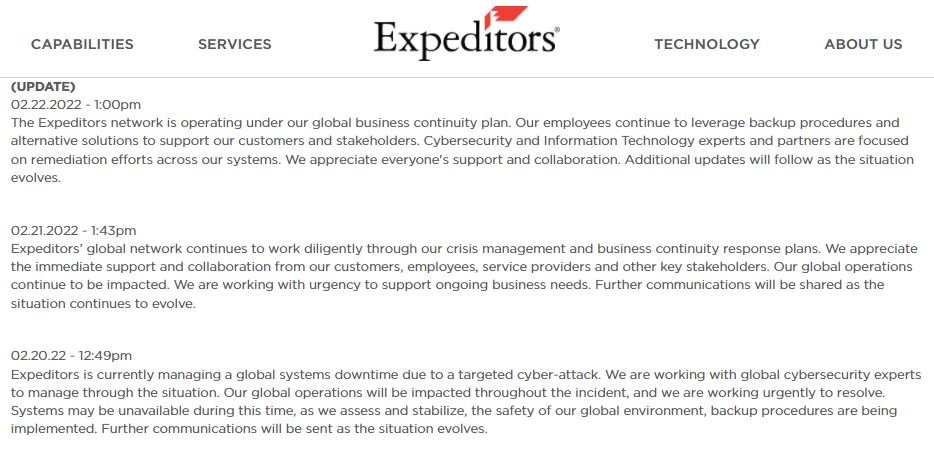Expeditors International, a renowned U.S.-based logistics and transportation firm, became the victim of a critical cyberattack that forced the disruption of most of its operations around the world. This is one of the most important companies in its field, generating revenues of up to $10 billion USD per year and operating in 350 locations around the world.
While the company reserved details about the incident, an informant notified BleepingComputer researchers that the problems were caused by a ransomware attack.

At the moment Expedition has only mentioned that the failures are still being addressed: “The systems may not be available for a while; we will assess and stabilize the security of our global environment,” the company said.
The attack appears to have had a significant impact on the firm’s operations, as freight, customs and distribution activities continue to present disruptions. This situation will extend until the company can restore its systems from its backups.
The firm is also seeking solutions with its operators and suppliers in order to minimize the impact of the attack on end users, although the company has not mentioned any details about a tentative date for the restoration of its operations.
In a second statement, Expeditors only described the attack as a “significant event that could have impacted operations, business and revenue.” The company has committed to publishing subsequent reports.
To learn more about information security risks, malware variants, vulnerabilities and information technologies, feel free to access the International Institute of Cyber Security (IICS) websites.

He is a well-known expert in mobile security and malware analysis. He studied Computer Science at NYU and started working as a cyber security analyst in 2003. He is actively working as an anti-malware expert. He also worked for security companies like Kaspersky Lab. His everyday job includes researching about new malware and cyber security incidents. Also he has deep level of knowledge in mobile security and mobile vulnerabilities.










